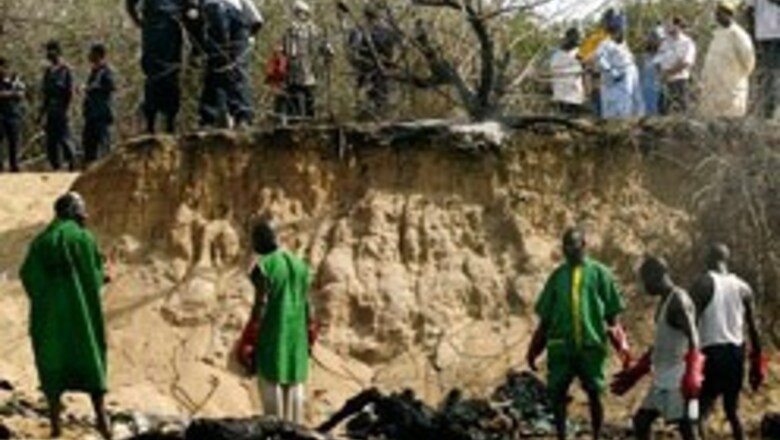
views
Ilado, Nigeria: The stark outlines of white skeletons lay against a beach charred black by fire. In a nearby mangrove swamp, other bodies floated alongside dozens of gasoline-filled plastic jerrycans twisted by the heat.
As dozens of scorched corpses awaited collection, grim-faced rescue workers swung others into a mass grave.
Gasoline gushing from a ruptured pipeline exploded on Friday as villagers scavenged for fuel, setting off an inferno that killed up to 200 people in this oil-rich country of mostly poor people.
It appeared some victims tried to flee the unfolding disaster only to be overtaken by flames spreading across the fuel slick.
More than 1,000 people in Nigeria, Africa's oil giant, have died in recent years when fuel they were pilfering from pipelines caught fire and officials said it would likely happen again.
''Because this thing has happened many times before, we thought it would be a deterrent, but apparently it wasn't enough deterrent for these people who died,'' said Lagos State Health Commissioner Tola Kasali, surveying the scene near Ilado, about 50 kilometers (30 miles) east of the main city of Lagos.
''Anywhere you have a pipeline in this country, you have this problem because people are greedy and they want quick money,'' Kasali said.
It was not known what set off the fire.
Police and rescue workers said villagers were collecting the gushing gas when the fuel ignited, and Lagos Police Commissioner Emmanuel Adebayo said 150 to 200 people died. The Red Cross had said it was treating survivors, but no live victims were seen.
By day's end, about 100 of the dead had been interred, and Kasali said cleanup efforts would resume Saturday.
He said the uncollected bodies pose a health risk to the millions of inhabitants of Lagos, whose skyline could be seen on the horizon.
''We just decided to give them a mass burial because no one can recognize them even their family members can't identify them,'' he said. ''We're concerned that if we don't do that, we'll create a health emergency in Lagos since it happened by the shore and the water will just flow back into the city.''
The blaze took place far from the center of the fishing village of Ilado, and it was unclear if there were witnesses.
Boatsmen said they heard an explosion before dawn and saw the glow of flames.
The pipeline was run by Nigeria's state oil company and was used to transport gasoline across the country for national consumption.
The impoverished people of Nigeria often tap pipelines, seeking fuel for cooking or resale on the black market. The highly volatile gasoline can ignite, incinerating those collecting it.
In 2004 a pipeline exploded near Lagos as thieves tried to siphon fuel, killing as many as 50 people. A 1998 pipeline blast killed more than 700 in southern Nigeria.
Most of Nigeria's oil is pumped in the southern Niger Delta region, far from Lagos. Pipes carry the crude to refineries across the nation.
Nigeria, which normally pumps 2.5 million barrels of crude per day, is Africa's largest producer and the fifth-largest source of imports to the United States. It was unlikely Friday's blast would affect exports.




















Comments
0 comment